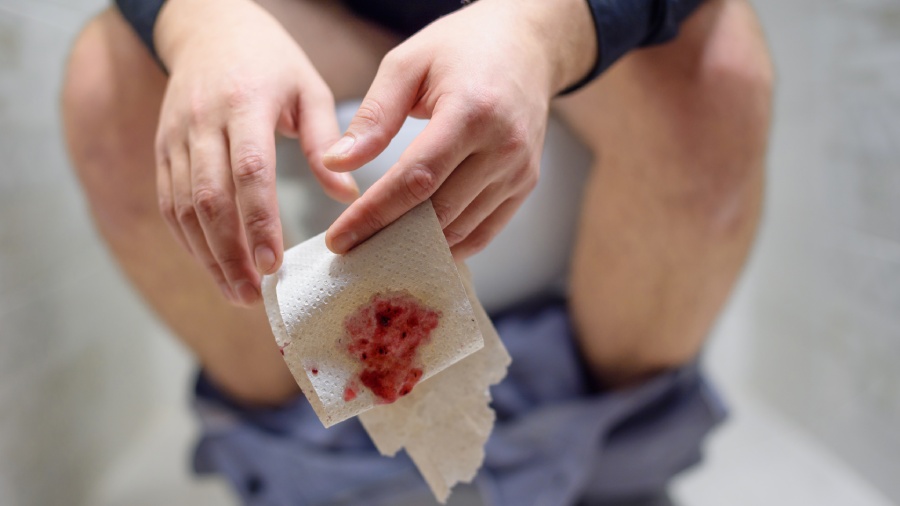The scientific name for piles is haemorrhoids, but when people say, “I have piles”, do they mean haemorrhoids, fissures, or just painful or painless bleeding from the rectum? About 50 per cent of the Indian population have haemorrhoids at some time or the other by the time they are fifty years old.
All of us are born with blood vessels that line the anus. This haemorrhoidal tissue is sensitive to changes in pressure. They help to differentiate between gas, diarrhoea and normal motion. If required, they signal the muscles around the anus to tighten and remain closed to maintain bowel control.
Sometimes the haemorrhoids become engorged. Stage 1 haemorrhoids rarely cause a problem. However, by the time it reaches stage 3 or 4, the person begins to notice them and feel uncomfortable. They may also find blood spots on the underwear or feel itching and burning.
The haemorrhoids become enlarged and inflamed when intra-abdominal pressure builds up. This can occur because of obesity (large paunch), pregnancy, sitting down most of the time, lack of physical activity and inadequate fibre (fruits and vegetables) in the diet resulting in hard stools and constipation. Straining during bowel movements can result in piles.
Weight lifters and people who regularly lift heavy loads as part of their job also increase their intra-abdominal pressure. Cycling places great pressure on the perineum, the area where haemorrhoids form. Cirrhosis of the liver can increase venous pressure in the abdomen and cause haemorrhoids, as can diseases of the intestinal tract such as ulcerative colitis, Crohn’s disease and cancers.
People don’t like to discuss their “piles” problem with friends or relatives or even mention it to their physician, even if they actually have bleeding. Sometimes, they self-diagnose piles and resort to quackery to treat themselves. This can have dangerous consequences because all bleeding from the rectum may not be due to piles. It can also be due to fissures, fistulas or even cancer.
Most of the problems in that area are visible to the physician and can be diagnosed with a rectal examination. However, if the general physician does not perform a rectal examination, you need to consult a gastrointestinal specialist for a complete evaluation. This can include a colonoscopy and imaging studies if necessary.
During the early stages, you can try some home remedies for piles. For example, you could use sitz baths. Take a basin and place some warm water in it. Add a teaspoon of salt and sit in it for 10 minutes for two to three times a day. The pain and itching will be relieved.
To prevent piles
- Drink 3-4 litres of water per day to prevent dehydration. Caffeine-containing tea, coffee, alcohol, and cola drinks are not isotonic, so they worsen dehydration.
- Eat 4 -6 helpings of fruits and vegetables per day. The requirement of dietary fibre is around 30 grams per day. (One small banana has about 4 grams).
- Do not keep sitting. If your work involves prolonged sitting, try and stand up every hour. For excellent health benefits, the recommendation is standing for 15 minutes every hour.
- Exercise aerobically for 30 minutes a day
- Do not sit on the toilet for more than 5 minutes. If you do not manage to have a bowel movement during that time, do not strain. Get up, drink some water and walk around.
Haemorrhoids may eventually require surgery. There are several procedures, like tying them off, lasers or surgery.
Try to overcome your inhibitions and have a medical consultation as soon as possible. It is better to confirm the diagnosis of piles and ensure you are not dealing with something more serious like cancer.
The writer has a family practice at Vellore and is the author of Staying Healthy in Modern India. If you have any questions on health issues, please write to yourhealthgm@yahoo.co.in











